SUMMARY
This is AI generated summarization, which may have errors. For context, always refer to the full article.

MANILA, Philippines – By requesting the International Criminal Court (ICC) Pre-Trial Chamber (PTC) to resume the investigation into President Rodrigo Duterte’s bloody drug war, Prosecutor Karim Khan rejected the efforts of the Department of Justice under DOJ Secretary Menardo Guevarra.
Guevarra and the DOJ have been hyping their drug war review since 2020, and used it to avail of an option in the Rome Statute to pause the investigation since November 2021.
But according to Khan: “It appears that the [DOJ] panel merely conducted a ‘desk review’ of these 302 cases…. The Panel’s ‘desk review’ by itself thus does not constitute investigative activity within the framework of article 18(2) of the Statute and cannot justify deferral of the Court’s investigation.”
Phillippine police killed more than 7,000 drug suspects in their conduct of legitimate operations. According to Khan’s 53-page request filed on Friday, June 24, the DOJ review only took on 302 cases and that the Philippine government “has not provided any documentation explaining how the Panel conducted its review.”
Under the Rome Statute, the investigation can only proceed if the country cannot do its own genuine investigation.
The outgoing justice secretary deferred comment, telling reporters on Saturday, June 25, that they have agreed that the Department of Foreign Affairs (DFA) will issue statements on the matter.
“As justice secretary, I have much to say about this development, but it is both necessary and prudent that I first discuss this matter with the DFA and other agencies involved,” said Guevarra.
Ball in Marcos’ court
By noon of June 30 when president-elect Ferdinand “Bongbong” Marcos Jr. officially takes on the presidency, “there is no such constitutional duty on the part of the new administration” to defend Duterte’s drug war, said lawyer Romel Bagares, a professorial lecturer in international law in three Manila law schools.
The coverage of ICC’s investigation are alleged killings under Duterte by the Davao Death Squad from November 2011 to June 2016, and the drug war killings from July 2016 to March 2019. The Philippines was an ICC member during this period.
“So the ball here will be in the hands of the Marcos administration to decide whether it will be in its interest to continue defending Duterte et al before the ICC proceedings,” said Bagares.
“Since [Duterte] also does not recognize the proceedings, he will likely refuse to heed any summons or submit himself to the proceedings. So the Marcos administration will have a lot on its plate as things go,” added Bagares.
In an earlier interview with Rappler, Marcos’ incoming justice secretary Jesus Crispin “Boying” Remulla said, “We do not want to submit to any [international] court unless we are dysfunctional.”
“We have a functioning domestic system, right? We’re just improving efficiency,” Remulla had said in a mix of English and Filipino.
Marcos had expressed the same view on the ICC during the campaign, but when he won, he told the United Nations he was also interested in seeing “high-level of accountability” in the aspect of human rights. The UN has a joint human rights program with the Philippines that entails funding efforts like probing other politically-motivated killings outside of the drug war, but this was a compromise slammed by the human rights community at home and abroad as being too soft on Duterte.
In a statement on Saturday, June 25, Duterte’s acting presidential spokesperson Martin Andanar said: “Let these efforts of the Philippine government run their course; after all, reciprocity is a key principle in the methods of work of the ICC. To veer away from this principle will only reveal the politicization that has infiltrated the ICC’s ranks.”
Andanar also said “It is also interesting that the ICC mentions the Commission on Human Rights (CHR)’s report as basis for its call for intervention. Let it be clarified that while the CHR has recommended in said report that relevant international organizations continue monitoring the human rights situation in the country, in no part of its report did it even imply the need for direct external investigation. Surely, the CHR knows the implications of such intervention on State sovereignty, and we expect the ICC, especially Mr. Khan, to know that as well.”
Asked about this, former CHR commissioner Gwen Pimentel-Gana, who headed CHR’s task force on extrajudicial killings, said: “The ICC is free to utilize the CHR report as it deems fit. We see nothing wrong with the ICC conducting an investigation within the period when the Philippines was bound by the Rome Statute. The Philippine government ratified the Statute hence it is obligated to adhere to it.”
What happens next?
The groups Rise Up and its counsel, the National Union of Peoples’ Lawyers (NUPL), representing the victims who sent their accounts to the ICC, said Khan’s request was “timely and necessary” because Marcos had already said he would continue the drug war. Marcos had said that he would continue it “within the framework of the law.”
“As seen in other situations before the ICC, investigations that drag on for too long jeopardize the process of seeking accountability and justice for the most heinous crimes. This concern is all-too worrisome as the Marcos-Duterte administration agrees with and even promises to continue with Duterte’s drug policies,” the groups said in a statement Saturday.
But they are still in for a long wait.
First, the pre-trial chamber must approve Khan’s request first before the investigation is fully resumed. The Philippine government will have a chance to oppose Khan, and even go up to the appeals chamber should the PTC decide to resume.
The ICC would need to gather sufficient evidence to be able to name a person for summons or warrants of arrest. Having those people appear before the ICC is an entirely different matter, especially that the Philippines has already withdrawn from the ICC. The court does not hold trials if the subjects do not appear.
The ICC has no police powers, so cooperation will depend on countries and their own law enforcement.
“It will drag on for years for that reason, unless a more friendly administration comes along and decides to cooperate with the ICC as it should,” said Bagares.
Apart from Duterte, the ICC reports so far have named drug war architect Senator Ronald “Bato” dela Rosa and former justice secretary Vitaliano Aguirre II.
“Duterte, given his age, may not even live long enough to see a Philippine government cooperative with the ICC happen, but we can’t say the same for De la Rosa and other ring leaders that a completed investigation may add to the roster of those most responsible for the drug killings,” said Bagares.
Khan appealed to the pre-trial chamber to let him resume the probe.
“Without such an investigation, the Prosecution submits that there is a real risk that Rome Statute crimes committed in the Philippines will go un-investigated and unpunished,” said Khan in his request.
NUPL president Edre Olalia said the incoming president should listen to his chosen national security adviser, Clarita Carlos, to let allow the ICC investigation.
“The incoming Marcos Jr.-Duterte team must heed the wise counsel of its incoming national security adviser on this point. Else, the inevitable conclusion is that it is indeed coddling and covering up human rights violations past and present,” Olalia said in a statement on Saturday.
Maria Elena Vignoli, senior international justice counsel at Human Rights Watch, described Khan’s move as a “booster shot for accountability.” – With a report from Jodesz Gavilan/Rappler.com
Add a comment
How does this make you feel?
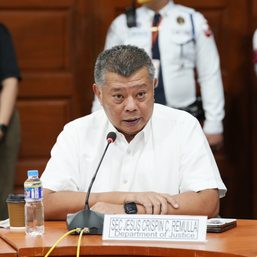
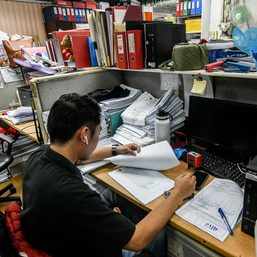
![[OPINION] If it’s Tuesday it must be Belgium – travels make over the Marcos image](https://www.rappler.com/tachyon/2024/04/tl-travel-makeovers-marcos-image.jpg?resize=257%2C257&crop_strategy=attention)
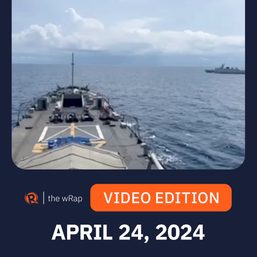




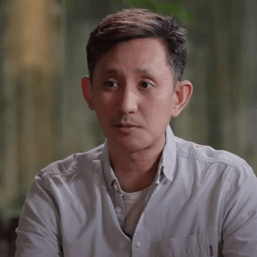
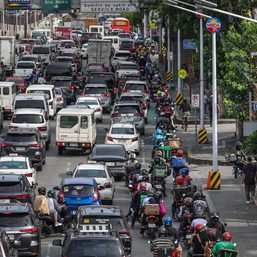
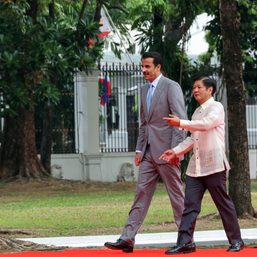
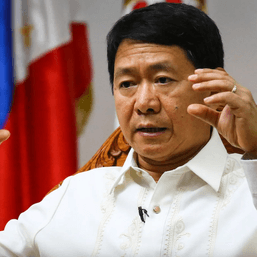
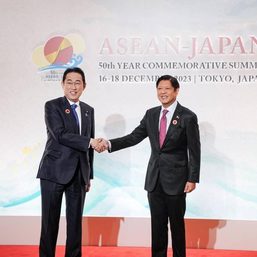
![[The Slingshot] Alden Delvo’s birthday](https://www.rappler.com/tachyon/2024/04/tl-alden-delvo-birthday.jpg?resize=257%2C257&crop=263px%2C0px%2C720px%2C720px)
![[EDITORIAL] Ang low-intensity warfare ni Marcos kung saan attack dog na ang First Lady](https://www.rappler.com/tachyon/2024/04/animated-liza-marcos-sara-duterte-feud-carousel.jpg?resize=257%2C257&crop=294px%2C0px%2C720px%2C720px)
![[Newsstand] Duterte vs Marcos: A rift impossible to bridge, a wound impossible to heal](https://www.rappler.com/tachyon/2024/04/duterte-marcos-rift-apr-20-2024.jpg?resize=257%2C257&crop=278px%2C0px%2C720px%2C720px)

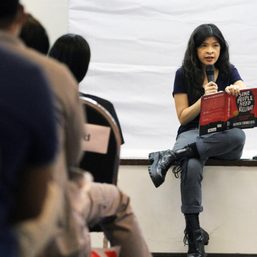
![[Rappler’s Best] Patricia Evangelista](https://www.rappler.com/tachyon/2024/04/unnamed-9-1.jpg?resize=257%2C257&crop=486px%2C0px%2C1333px%2C1333px)


There are no comments yet. Add your comment to start the conversation.